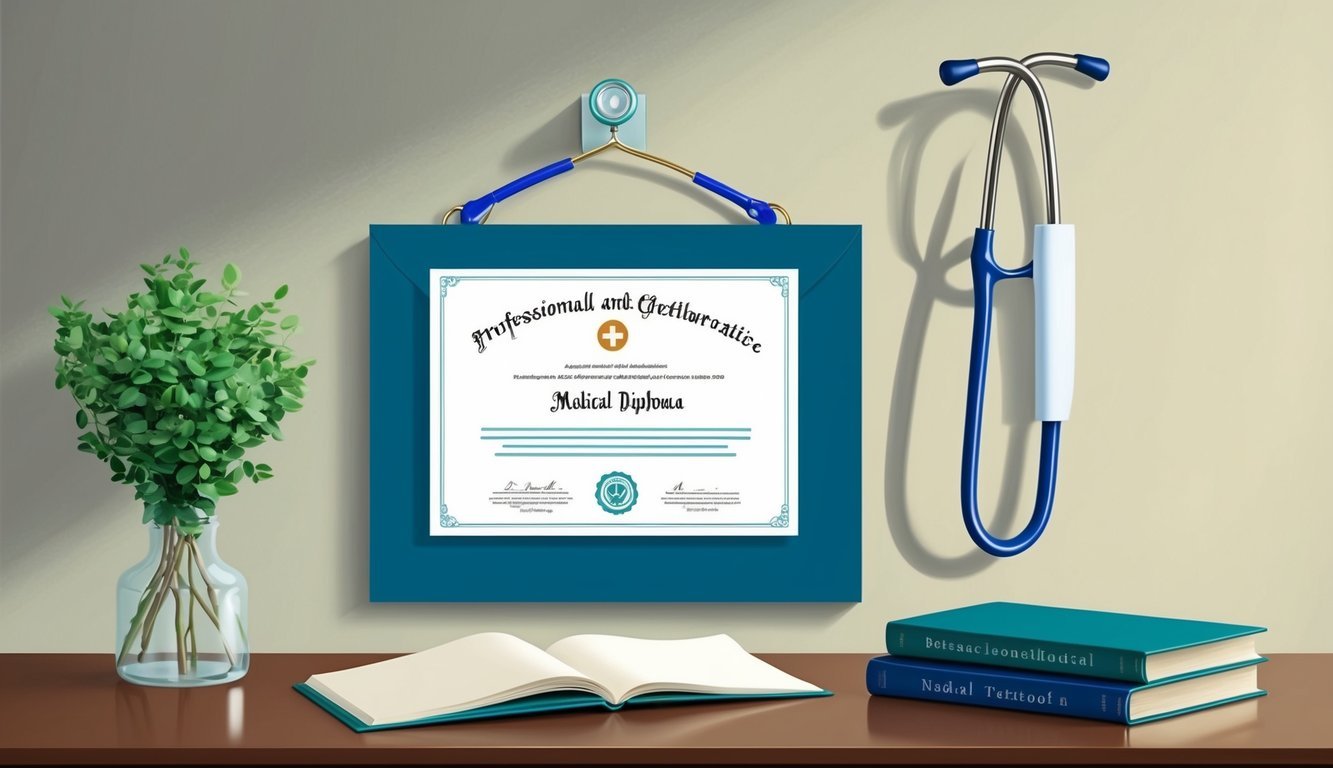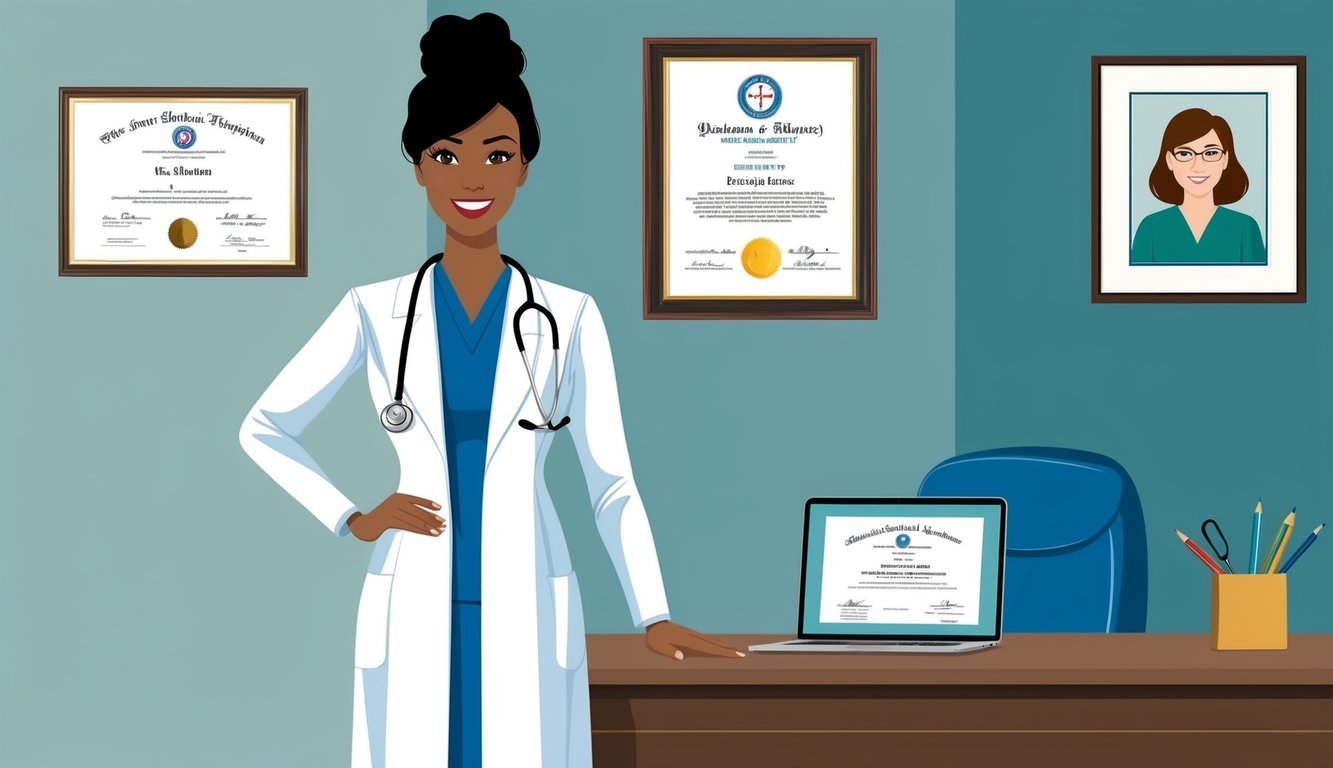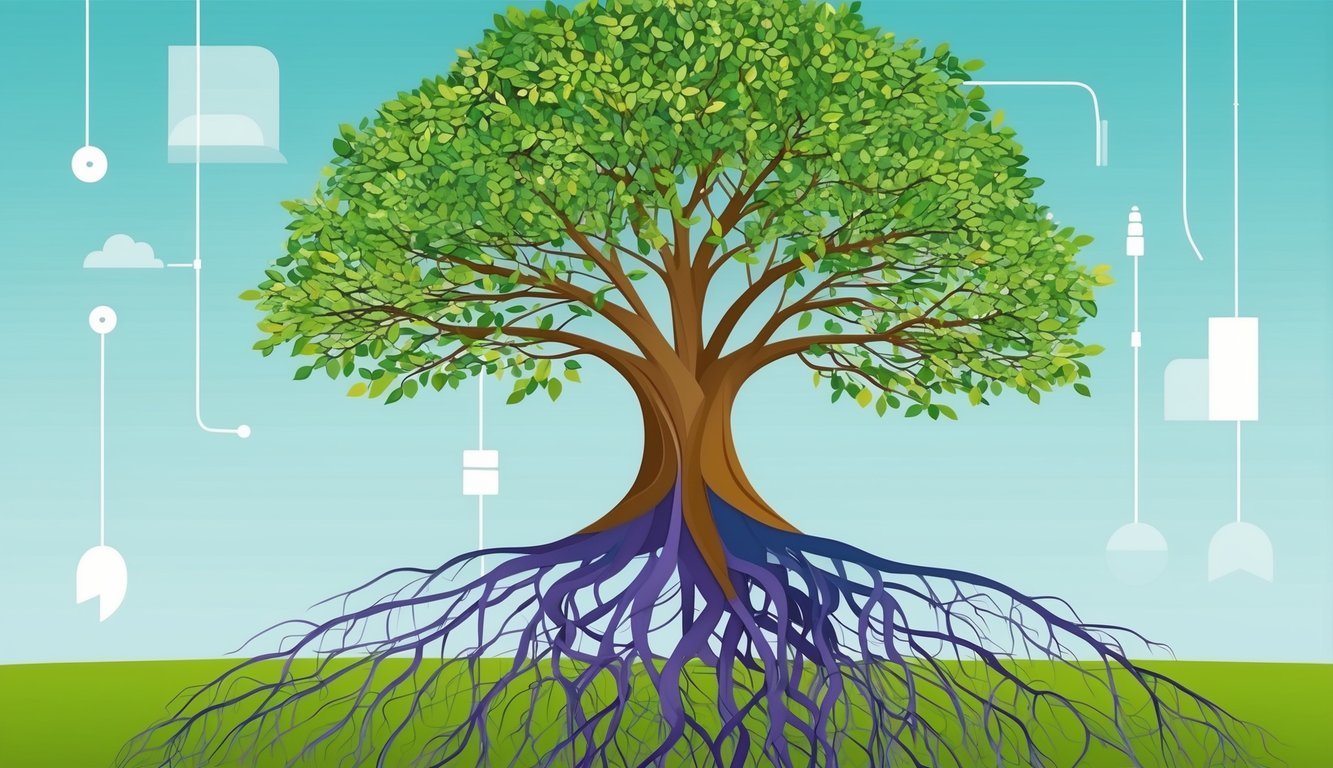Becoming a Family Nurse Practitioner (FNP) can be a rewarding career move for registered nurses holding a Bachelor of Science in Nursing (BSN). You can transition from your BSN to FNP through various online and in-person programs designed to prepare you for advanced practice nursing.
This pathway opens numerous opportunities for career advancement and increased patient impact.
If you are considering this transition, it’s important to understand the educational requirements, accreditation processes, and clinical experiences involved.
With the right program, you can gain the skills needed to provide comprehensive care to families and communities, paving the way for a fulfilling and stable career in healthcare.
Exploring options for pursuing your FNP can seem overwhelming, but knowing the main aspects of the journey can make it easier.
The rewards of this career path often far outweigh the challenges, making it an excellent choice for dedicated nursing professionals.
Key Takeaways
- Transitioning from a BSN to FNP enhances your career opportunities in nursing.
- Understanding accreditation and licensure is key to your success as an FNP.
- Clinical experience is essential for providing quality patient care.
Pathways to Becoming a Family Nurse Practitioner

Becoming a Family Nurse Practitioner (FNP) requires careful planning and education.
The primary pathway begins with a Bachelor of Science in Nursing (BSN), which leads to a Master’s degree program in nursing focused on family practice.
Here’s what you need to know.
Baccalaureate Degree Program in Nursing
To start your journey, you first need to obtain a Bachelor of Science in Nursing (BSN).
This program typically takes four years and includes both classroom education and clinical practice.
During your BSN, you will cover essential topics like:
- Nursing theory
- Human anatomy and physiology
- Pharmacology
- Pathophysiology
After earning your BSN, you’ll be eligible to take the NCLEX-RN exam to become a registered nurse (RN).
This step is crucial before pursuing further education, like a Master’s degree program in nursing focusing on FNP.
After becoming an RN, you can transition into a BSN to MSN program.
This online family nurse practitioner program equips you with the skills needed for advanced practice nursing.
You’ll learn to manage patient care across the lifespan, enhance disease prevention, and promote health effectively.
Advanced Educational Requirements

To become a Family Nurse Practitioner (FNP), you must meet specific advanced educational requirements.
These usually involve obtaining a Master of Science in Nursing (MSN) followed by the option of a Doctor of Nursing Practice (DNP).
Each level enhances your skills and knowledge in nursing.
Master of Science in Nursing
A Master of Science in Nursing is a crucial step in your journey to becoming an FNP.
This program typically takes 1.5 to 3 years, depending on whether you attend full-time or part-time.
In the MSN program, you’ll study:
- Advanced Health Assessment
- Pharmacology
- Pathophysiology
- Clinical Management
These courses are designed to prepare you for direct patient care and leadership roles in healthcare.
After completing your MSN, you will need to pass a national board certification exam to practice as an FNP.
Many schools offer online MSN programs, making it easier to balance education with work commitments.
You can find more information about these programs here.
Doctor of Nursing Practice
The Doctor of Nursing Practice (DNP) is the highest level of education you can achieve in nursing.
This program typically takes 2 to 4 years to complete, depending on your educational background and whether you study full-time or part-time.
The DNP focuses on advanced clinical practice and leadership.
Key areas of study include:
- Evidence-Based Practice
- Healthcare Policy
- Quality Improvement
A DNP is particularly beneficial if you want to specialize in areas such as pediatric or geriatric care.
It also prepares you for administrative roles or teaching positions in nursing programs.
Completing a DNP can open doors to advanced roles in healthcare leadership.
Learn more about DNP programs here.
Accreditation and Certification

Accreditation and certification are critical for your journey from a Bachelor of Science in Nursing (BSN) to becoming a Family Nurse Practitioner (FNP).
Understanding these processes can help you ensure that your education meets industry standards and prepares you for the certification exams you’ll need.
Accreditation by CCNE
Accreditation by the Commission on Collegiate Nursing Education (CCNE) is vital for nursing programs.
This organization ensures that programs offer high-quality education necessary for the nursing profession.
You should ensure your BSN program is accredited by the CCNE.
This accreditation can enhance your job prospects and ensure that your education meets national standards.
Many graduate programs require candidates to have a degree from an accredited institution.
Without this, you may face challenges when applying to FNP programs.
Certification Eligibility and Exams
To become certified as an FNP, you must meet eligibility criteria set by certifying bodies like the American Nurses Credentialing Center (ANCC) and the American Academy of Nurse Practitioners Certification Board (AANPCB).
Generally, you need a master’s degree in nursing and clinical experience.
Once eligible, you can take certification exams.
These exams assess your clinical knowledge and readiness to provide care as an FNP.
Passing these exams grants you national certification, essential for your licensure and employment opportunities.
Check with the ANCC and AANPCB for specific requirements and study resources.
Clinical Experience and Licensure

Gaining clinical experience and obtaining licensure are essential steps in the transition from a Bachelor of Science in Nursing (BSN) to a Family Nurse Practitioner (FNP).
This process ensures that you possess the necessary skills and credentials to deliver quality care.
Clinical Training and Hours
As you pursue your FNP, clinical training is a vital component.
Programs typically require you to complete a specific number of clinical hours.
These hours are often achieved through clinical rotations in various settings, including hospitals, outpatient clinics, and community health organizations.
Most FNP programs mandate around 500-700 clinical hours.
Here’s a general breakdown of the clinical training components:
| Component | Hours Required |
|---|---|
| Primary Care | 300-400 hours |
| Specialty Care | 100-300 hours |
| Pediatric Care | 100-200 hours |
During these rotations, you will work under the supervision of experienced nurse practitioners or physicians.
This hands-on experience is crucial for developing your assessment and diagnostic skills in real-world scenarios.
You’ll also have opportunities to apply theoretical knowledge in practice.
State Licensure Requirements
After completing your FNP program, obtaining state licensure is the next critical step.
You must be a licensed registered nurse (RN) in your state to apply for FNP licensure.
Each state has its own Board of Nursing that outlines the specific requirements.
Most states require you to pass the national NP certification exam after graduation.
Here are key steps involved:
- Verify RN Licensure: Ensure your RN license is current and in good standing.
- Pass Certification Exam: Complete the certification exam offered by organizations like the AANP or ANCC.
- Submit Application: Apply for state licensure through your Board of Nursing, including proof of education and exam results.
Be sure to check your specific state’s requirements, as they can vary.
Completing these steps is essential for legal practice as an FNP.
For detailed information, visit your state’s Board of Nursing website to ensure compliance.
Job Opportunities and Growth

As you consider the transition from a Bachelor of Science in Nursing (BSN) to a Family Nurse Practitioner (FNP) role, it’s important to understand the job landscape and growth potential.
Opportunities in this field are expanding rapidly, driven by a demand for healthcare services and specialized care.
Employment Statistics and Locations
Nurse practitioners (NPs) are in high demand across various settings.
According to recent data, the job growth for NPs is projected to be 45% over the next decade.
This growth is significantly higher than many other professions.
States with the highest demand for NPs include:
| State | Number of NPs | Projected Growth (%) |
|---|---|---|
| California | 29,000 | 40% |
| Texas | 25,000 | 38% |
| New York | 20,000 | 35% |
| Florida | 15,000 | 42% |
Nurse practitioners can expect to find job opportunities in hospitals, clinics, and private practices.
They can also work in underserved areas where healthcare access is limited.
The flexibility of location allows you to choose where you want to live and work.
Specializations and Advancements
As an FNP, you can choose from various specializations to enhance your career.
Common specializations include acute care, pediatrics, geriatrics, and psychiatric health.
Each specialization can lead to additional certifications and roles.
Continuing education is key to advancing in this field.
Many NPs pursue additional certifications to become experts in their chosen area.
This not only increases your job prospects but can also lead to higher salaries.
For example, acute care nurse practitioners can earn average salaries of around $135,000 per year.
How does the curriculum of a Chamberlain FNP program compare to traditional BSN to NP pathways?
The curriculum for a Chamberlain FNP program typically focuses on both clinical practice and theory.
It usually includes advanced health assessment, pharmacology, and patient management courses.
Traditional BSN to NP pathways also cover similar subjects but may have different clinical placement requirements and structures.
What are the perceived challenges when transitioning from RN to NP roles?
Many RN-to-NP transition students face challenges such as increased responsibilities and the need for advanced clinical decision-making skills.
Additionally, balancing coursework with work and personal life can be difficult.
Building confidence in patient assessment and treatment planning is a common concern.
What are the key differences between a Doctor of Nursing Practice (DNP) and a Family Nurse Practitioner (FNP) for a BSN graduate?
A DNP is an advanced degree focused on clinical practice, leadership, and policy.
An FNP role is a specific practitioner role that provides primary care to families.
While a DNP may involve broader leadership responsibilities, an FNP mainly focuses on direct patient care.
Can BSN-educated nurses enroll directly in a DNP program without prior NP experience?
Yes, many DNP programs allow BSN-prepared nurses to apply without prior NP experience.
Some programs may require or recommend gaining some clinical experience or taking foundational courses before entering the DNP curriculum.
Always check specific program requirements for clarity.

